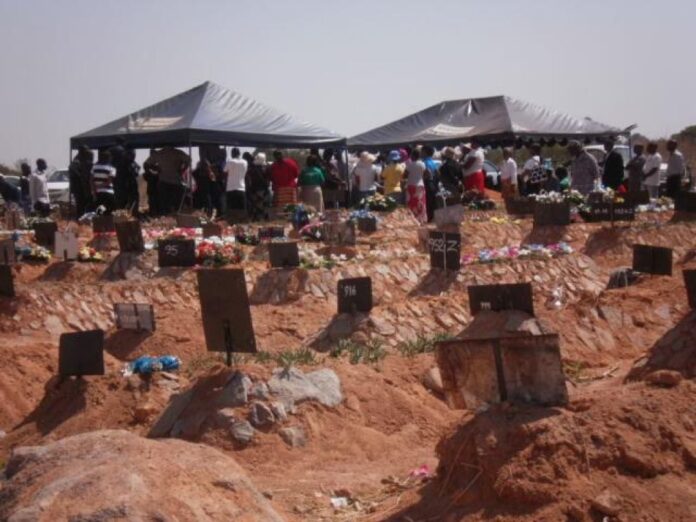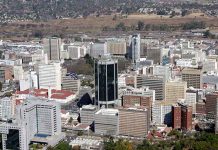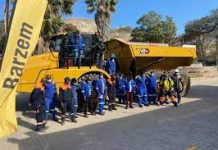
Sydney Kawadza
The Harare City Council is in urgent need of a new burial site as most of its cemeteries re largely full, a development which is forcing residents to seek alternative burial space at private cemeteries or nearby areas.
The COVID-19 pandemic has led to rising numbers of burials with council grave diggers being overwhelmed. This has forced council authorities to approach private parlours to assist with the interments.
Shortages of burial space has also seen private memorial parks charging in excess of US$280.00 per each burial.
Harare City Council owns Warren Hills and Granville (kuMbudzi) cemeteries which have filled up while plans, according to acting city spokesperson, Innocent Ruwende, for a new site are at an advanced stage.
Government had released land for the establishment of a new burial site in Harare.
“Our staff is now overwhelmed and Nyaradzo has now chipped in and is assisting with grave digging. We are also making efforts to ensure that other stakeholders follow suit. The situation has also been compounded by staff shortages as some of the workers are not at work because of the pandemic,” he said.
He, however, said council has not yet considered mass burials adding that while they offer cremation services at Warren Hills, most families have not approached for the latter.
“Mass burials are taboo among our communities, maybe, if it is at national level and people are not given a choice. At moment, we are allowing double burials for couples with their consent. No doubt a new cemetery is now needed. We have Eyestone Park, which we were given by government…about 142 hectares and we already have a site plan,” he said.
Private cemeteries in Harare include Glen Forest Memorial Park, Zororo Memorial Park along the Harare-Chitungwiza Highway and Restland Memorial Park, located on the peripheries of Dzivaresekwa high-density suburb.
The Restland Memorial Park has brought relief to residents of Dzivaresekwa, Kuwadzana, Mufakose and Tynwald while people in such areas as Hatcliffe have been forced to seek alternative burial space in Domboshava and surrounding farms in Goromonzi District.
The shortage of burial space has resulted in a number of suggestions being made including cremation — a process in which bodies are burnt and reduced to ashes. However this is largely shunned as it is viewed as a religious abomination and cultural taboo with the majority of Zimbabweans preferring burials.
Reports show that only 2.4 percent of those that die in Harare are cremated.
In other parts of the world, burial grounds are being recycled by removing remains from older graves, burying them deeper in the same grave and then reusing the space on top for a new body.
European countries as Germany, authorities reuse the same grave space after several years while reports have indicated that families in Spain and Greece, rent a “niche”, an above-ground crypt where bodies lie for several years. ecomposed bodies are moved to a communal burial ground so the niche can be used again.
In Israel, authorities have approved the creation of multi-storey underground burial tunnels.











